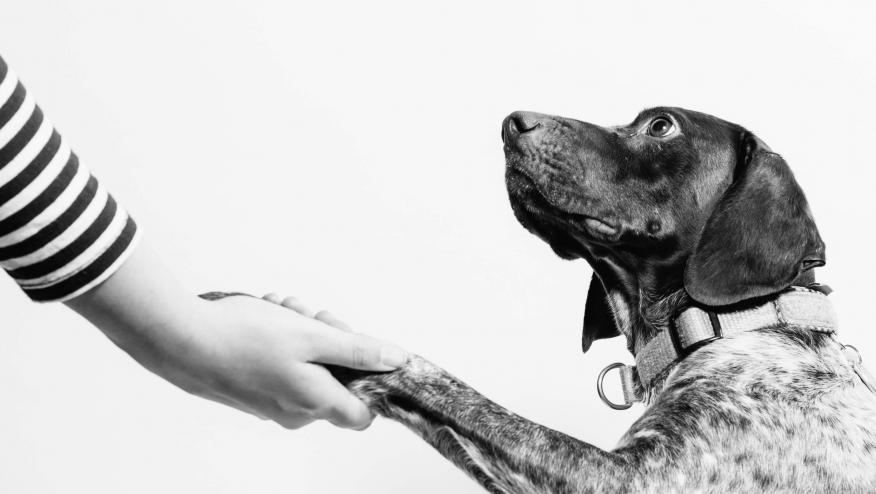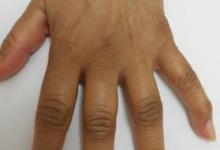ICYMI: A Shortage of Trust Save

Editor's note: This article originally appeared January 24, 2023, and is being shared again this week in case you missed it.
I wanted to complain about patients who complain, but guilt and common sense took over. I intended to declare the problem to primarily belong to the doctor, rather than the patient (the complainant). To me, the solution to the patient’s consternation should begin and end with the source, me (you).
My introspection, reasonings, and commandments were fine, but I kept running into the enigma of “Trust” – which can either be a speed-bump or chasm in our physician-patient relationships.
I’ve oft heard the truism that “Trust is in short supply”. This is so true. Those I value most, are the ones I trust the most. My nurse practitioner, my front desk gal, my medical partner, and my best friend, all highly valued, always trusted, and mine; I cling to them as the linchpins to my life. When you find someone to trust, never let go.
Trust is the wild card, monkey wrench that gets between politicians, lovers, next-door neighbors and doctors and patients. Why does the same patient (with lupus) who did not fill her prescription for hydroxychloroquine, happily and gladly act on friend’s restaurant recommendation? It’s likely they trust the friend; but you the doctor? You haven’t yet earned it.
How can we more effectively merit trust from our patients?
You may interpret their presence in your office as a tacit a priori trust; this is seldom true. Trust has to be earned. with your patients, partners, coworkers, leaders, everyone except my dog Rudi. Dogs trust unreservedly. Me? I want to trust, but don’t trust cats because I’m certain they don’t trust me.
Given the need to know, I embarked on a trust hunt. Why not find the limits, insights, and clues to trust by asking the great minds and leaders from the last 200 years about their insights. Below you will find a series of tell-tale quotes on trust and (in italics) what I have learned and believe.
TRUST LESSONS
The Challenge of Trust
- “Learning to trust is one of life's most difficult tasks” - Isaac Watts
- “Trust is hard-earned, easily lost, and difficult to reestablish.” - Carol Folt
- “I always have issues with trust.” - Vin Diesel
- “Love all, trust a few, do wrong to none.” - William Shakespeare
- “Trust is very hard if you don't know what (or who) you're trusting.” Marianne Williamson
- “Trust but verify.” – Ronald Reagan
Yes, trust is in short supply. Trust is often doubted or requires confirmation and renewal. Hence, trustworthy people are hard to identify; harder still is finding a “culture of trust. Yet, neuroscience suggests we are hard-wired to trust others. But if trust is corrupted, betrayed or not fulfilled, it is near impossible to trust again. Trust can be eroded by life experiences, relationships, personality, and illness (mental or medical) which fuel negativism, more than trust. The brain views trust as a social gamble. Factors that favor trust, include honesty, consistency, accountability, effective communication and reciprocity, to name a few. Sometimes trust is born of something personal, old-fashioned, or unexpected. Trust seldom depends on your degrees, CV, accomplishments, or title(s).
Go with your Gut!
- “I've only ever trusted my gut on everything. I don't trust my head, I don't trust my heart, I trust my gut.” - Bryan Adams
- “Trusting our intuition often saves us from disaster.” - Anne Wilson Schaef
- “Be willing to trust your instincts, especially if you cannot find answers elsewhere.” - Brian Koslow
- “Don't trust anyone over 30.” - Pat Boone
- “Never trust the advice of a man in difficulties.” - Aesop
People trust their “gut” more than facts or science. Such beliefs can work against your best efforts to diagnose and treat based on good evidence and practices. But, physicians often fail to recognize, that which is so certain or proven to you (e.g., starting MTX for new RA), may be unknown, unexpected and unclear to a patient who does not know or trust you yet. Hence, they are more likely to stick with what they know (their “gut”) than to follow the expensive, best, medical advice. Then factor in the possibility that you may not be trusted because of your age, communication style (or lack thereof), appearance and attitude, clinic staff and logistics or the cost of your prescriptions. For patients, trust is an uphill journey (the forces of anti-trust), that is countered by “go with your gut” thinking, an easy familiar, downhill (backwards) slide.
Building Trust
- “Trust has to be earned, and should come only after the passage of time.” - Arthur Ashe
- "It takes 20 years to build a reputation and five minutes to ruin it." --Warren Buffett
- “Trust is built with consistency.” - Lincoln Chafee
- “Earn your leadership every day.” – Michael Jordan
- “Nobody cares how much you know, until they know how much you care.” – Theodore Roosevelt
- “If people like you, they'll listen to you, but if they trust you, they'll do business with you.” - Zig Ziglar
Trust is very time/consistency/competency dependent. Yet, you don’t have the time to wait for trust to be adopted organically or by happenstance. You earn this one visit at a time. So, be purposeful in your trust building. Patients need to see the reward in coming to you. This can be as simple as face-to-face, eye-to-eye listening, acknowledging and helping them in ways that don’t involve prescriptions. In the beginning, your patients want to know as much (if not more) about you, than your recommendations. How soon and by what actions will they ultimately learn that “you have their back”?
- “How can people trust the harvest, unless they see it sown?” - Mary Renault
- “When you form a team, why do you try to form a team? Because teamwork builds trust and trust builds speed.” - Russel Honore
“Proof is in the pudding” is a proverb that means the value, quality, or truth you bring needs to be judged directly by experience. This not only applies to you, but also to your clinic/hospital staff and operation. I’ve often said, that if you want to know about a doctor’s attitude, just talk to and deal with his staff. They always learn from you and reflect your professionalism. Hence, it is incumbent upon you to build the “culture of trust” within your clinic – for your patients (who need and want to trust you).
Advice on Trust
- “You must trust and believe in people or life becomes impossible.” - Anton Chekhov
- “Better to trust the man who is frequently in error than the one who is never in doubt.” - Eric Sevareid
- “The best way to find out if you can trust somebody is to trust them.” - Ernest Hemingway
- In the end, you have to just pull the trigger. Trust the car, trust the brakes, just go. Daniel Ricciardo
- “I have in sincerity pledged myself to your service, as so many of you are pledged to mine. Throughout all my life and with all my heart I shall strive to be worthy of your trust.” - Queen Elizabeth II
I believe it’s prudent and honest to ask for trust, without using the words “Trust Me”. This can start by giving each patient HOPE, GOALS, & RULES; and furthered by honest communication and actions. Patients easily declare the doctors they trust, as those who “giving a damn.”
Trust is the Goal
- “To be trusted is a greater compliment than being loved.” - George MacDonald
- “It's a delight to trust somebody so completely.” - Jeff Goldblum
- “The high destiny of the individual is to serve rather than to rule.” – Albert Einstein
- “Earn trust, earn trust, earn trust. Then you can worry about the rest.” - Seth Godin
Earning the patients trust is as important as your diagnosis or treatment. Once gained, you go from “Dr. Smith” to “My Doctor”.
Join The Discussion
Jack, well done blog about trust. I have been assisting a friend writing a book about the history of trust, a topic near to my heart. Will get you a copy when complete.
Gary










If you are a health practitioner, you may Login/Register to comment.
Due to the nature of these comment forums, only health practitioners are allowed to comment at this time.